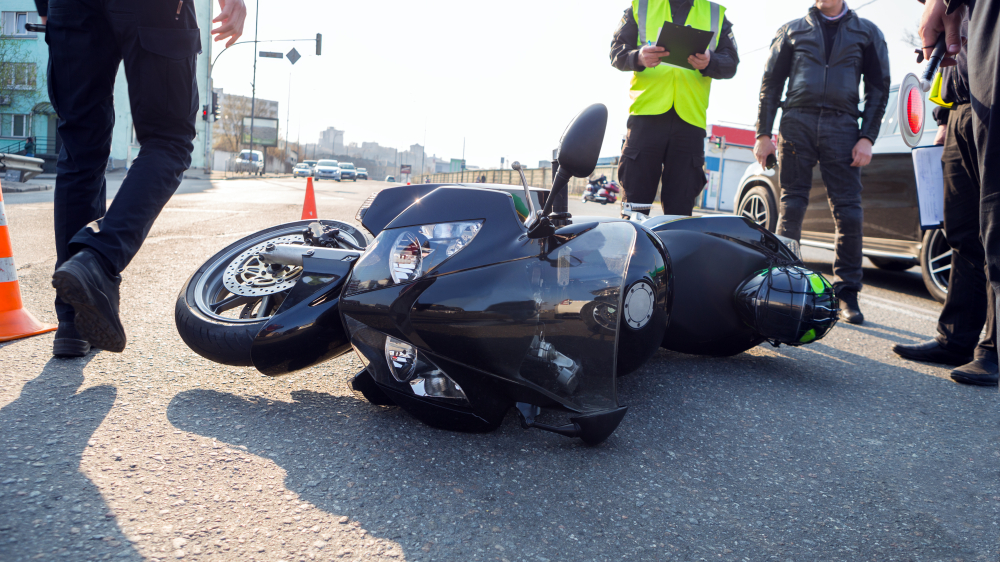Al vivir en Schaumburg, Arlington Heights, Palatine o Elk Grove Village, todos sabemos lo concurridas que se vuelven las carreteras, especialmente cerca de Woodfield Mall, I-90 y Golf Road. Los accidentes automovilísticos ocurren aquí todos los días, y aunque muchas personas se enfocan en las lesiones obvias, huesos rotos, cortes o moretones, la realidad es que algunas de las lesiones más peligrosas son las que no se notan de inmediato.
Como abogado de lesiones personales que presta servicios en Schaumburg y las comunidades circundantes, he visto de primera mano cómo las lesiones ocultas pueden cambiar vidas. Estas son las lesiones que aparecen horas o incluso días después, a menudo cuando cree que está a salvo. Ese retraso en los síntomas puede costarle su salud, su capacidad para trabajar y, en algunos casos trágicos, incluso su vida.
Quiero explicar por qué son importantes las lesiones ocultas, por qué siempre debe consultar a un médico inmediatamente después de un accidente automovilístico y cuáles son las implicaciones legales según la ley de Illinois si espera demasiado.
Por qué las lesiones ocultas son tan graves
Tu cuerpo entra en shock durante un choque, inundándote de adrenalina. Esa descarga de adrenalina puede enmascarar el dolor, haciéndote creer que estás bien. Horas más tarde, puede desarrollar mareos, dolores de cabeza, rigidez o incluso dolor interno.
Algunas de las lesiones ocultas más comunes incluyen:
- Lesiones cerebrales traumáticas y conmociones cerebrales
- Hemorragia interna
- Latigazo cervical y daño en el cuello
- Hernias discales y lesiones de la columna vertebral
- Lesiones de tejidos blandos que limitan la movilidad
El problema es que si espera para recibir tratamiento, no solo la condición puede empeorar, sino que las compañías de seguros intentarán argumentar que sus lesiones no están relacionadas con el accidente.
Ley y documentación médica de Illinois
Según sección 735 ILCS 5/13-202, el plazo de prescripción para casos de lesiones personales es generalmente de dos años a partir de la fecha del accidente. Si bien eso puede parecer mucho tiempo, esperar para buscar atención médica le da a la defensa la ventaja de argumentar que sus lesiones provienen de otro lugar.
Illinois también sigue una regla de negligencia comparativa modificada (735 ILCS 5/2-1116). Si se determina que tiene más del 50% de culpa, no puede recuperar los daños. La documentación médica temprana ayuda a demostrar que la negligencia del otro conductor causó directamente sus lesiones.
Sus registros médicos suelen ser la evidencia más sólida en su caso. Cuando presento un reclamo para mis clientes, quiero mostrarle a la compañía de seguros o al tribunal un cronograma claro: accidente → atención médica inmediata → diagnóstico → tratamiento. Ese vínculo es fundamental.
Protegiendo su salud y su caso
Hacerse un examen de inmediato se trata de proteger su salud primero. He representado a clientes de Rolling Meadows, Des Plaines y Buffalo Grove que inicialmente pensaron que estaban bien después de una colisión, solo para enterarse días después de que tenían lesiones internas graves.
Ver a un médico de inmediato también protege sus derechos legales. Si espera, la compañía de seguros cuestionará si sus lesiones son reales o están relacionadas con el accidente. Eso puede reducir o incluso eliminar su compensación.
Como su abogado, mi objetivo es asegurarme de que reciba tanto el tratamiento que necesita como la recuperación financiera que se merece. Pero el primer paso siempre comienza con un chequeo médico inmediatamente después de un accidente.
Preguntas frecuentes sobre lesiones ocultas después de un accidente automovilístico en Illinois
¿Qué son las lesiones ocultas después de un accidente automovilístico?
Las lesiones ocultas son lesiones físicas que pueden no mostrar síntomas de inmediato. Estos incluyen conmociones cerebrales, hemorragias internas, lesiones en la columna vertebral y daño a los tejidos blandos. Son peligrosos porque pueden empeorar sin tratamiento y solo pueden aparecer horas o días después del accidente.
¿Por qué debería ver a un médico si me siento bien después de un accidente?
Sentirse bien no significa que no esté lesionado. La adrenalina a menudo enmascara el dolor. Muchas víctimas de accidentes experimentan síntomas tardíos como dolores de cabeza, rigidez en el cuello o mareos. Un médico puede realizar imágenes y exámenes para detectar lesiones antes de que se conviertan en una amenaza para la vida.
¿Cómo puede perjudicar mi caso esperar a ver a un médico?
Retrasar el tratamiento crea una brecha entre el accidente y sus registros médicos. Las compañías de seguros usarán esa brecha para argumentar que sus lesiones no estaban relacionadas con el accidente. Según la ley de Illinois, probar la causalidad requiere evidencia médica y esperar debilita su reclamo.
¿Cuál es el estatuto de limitaciones para presentar un reclamo por accidente automovilístico en Illinois?
La ley de Illinois requiere que la mayoría de los reclamos por lesiones personales se presenten dentro de los dos años posteriores al accidente. Si bien técnicamente tiene ese tiempo, esperar para buscar atención o ayuda legal hace que su caso sea mucho más difícil de probar y puede reducir la compensación que recibe.
¿Cómo afecta la negligencia comparativa a los casos de accidentes automovilísticos en Illinois?
Illinois sigue la negligencia comparativa modificada bajo sección 735 ILCS 5/2-1116. Si tiene más del 50% de la culpa, no puede recuperar los daños. Si tiene menos del 50% de culpa, su recuperación se reduce por su porcentaje de culpa. Los primeros registros médicos ayudan a reducir los intentos de culparlo por sus lesiones.
¿Pueden las lesiones ocultas conducir a reclamos por muerte por negligencia?
Sí. Trágicamente, las lesiones ocultas como hemorragias cerebrales o daños en órganos internos pueden volverse fatales si no se tratan. En tales casos, los miembros de la familia pueden presentar una demanda por muerte por negligencia en virtud de la Ley de Muerte por Negligencia de Illinois (740 ILCS 180/1). Es por eso que la atención médica inmediata es fundamental después de cualquier accidente.
¿Debo hablar con la compañía de seguros antes de ver a un médico?
No. Los ajustadores de seguros a menudo llaman rápidamente y preguntan si está lesionado. Si dices que no antes de ver a un médico, lo usarán en tu contra más tarde. Siempre obtenga tratamiento médico primero y hable con un abogado antes de proporcionar declaraciones a las compañías de seguros.
¿Qué compensación puedo recuperar por lesiones ocultas?
La compensación en casos de accidentes automovilísticos en Illinois puede incluir gastos médicos, salarios perdidos, dolor y sufrimiento, pérdida de vida normal y costos de tratamiento futuros. Las lesiones graves también pueden darle derecho a daños por discapacidad o desfiguración. Cada caso depende de sus registros médicos y de la evidencia que podamos presentar.
Llame a SJ Injury Law hoy para reclamar su justicia
En SJ Injury Law, hemos visto cómo las lesiones ocultas pueden devastar vidas cuando no se tratan. Sirviendo a Schaumburg, Arlington Heights, Elk Grove Village, Palatine, Mount Prospect y en todo Illinois, luchamos por las víctimas de accidentes automovilísticos y sus familias todos los días. Con más de 50 años de experiencia combinada, nuestros abogados han recuperado millones para clientes lesionados al responsabilizar a los conductores negligentes y a las compañías de seguros.
Si ha tenido un accidente automovilístico en Schaumburg o los suburbios circundantes, no espere. Proteja su salud, proteja su caso y llame a SJ Injury Law. Póngase en contacto con nuestro abogado de accidentes automovilísticos de Schaumburg en SJ INJURY LAW llamando al (847) 434-3555 para recibir su consulta gratuita. Servimos a Schaumburg, Chicago y todo Illinois.
Ley de lesiones de SJ – Reclame su justicia™.









